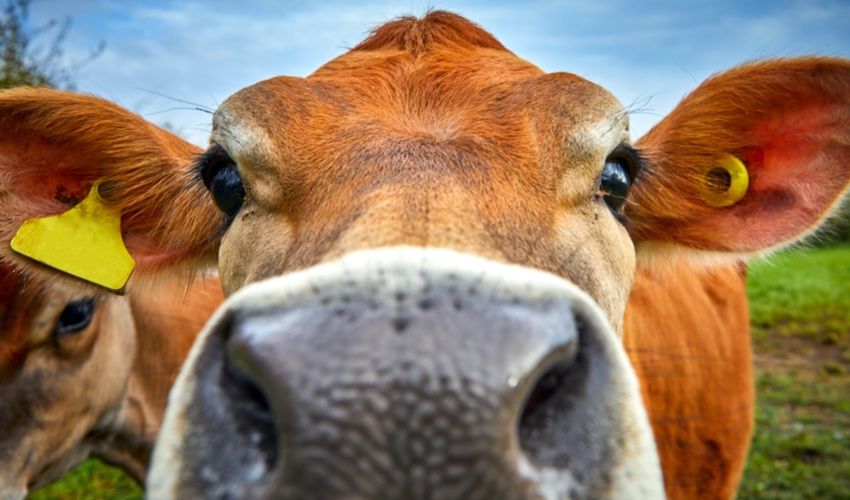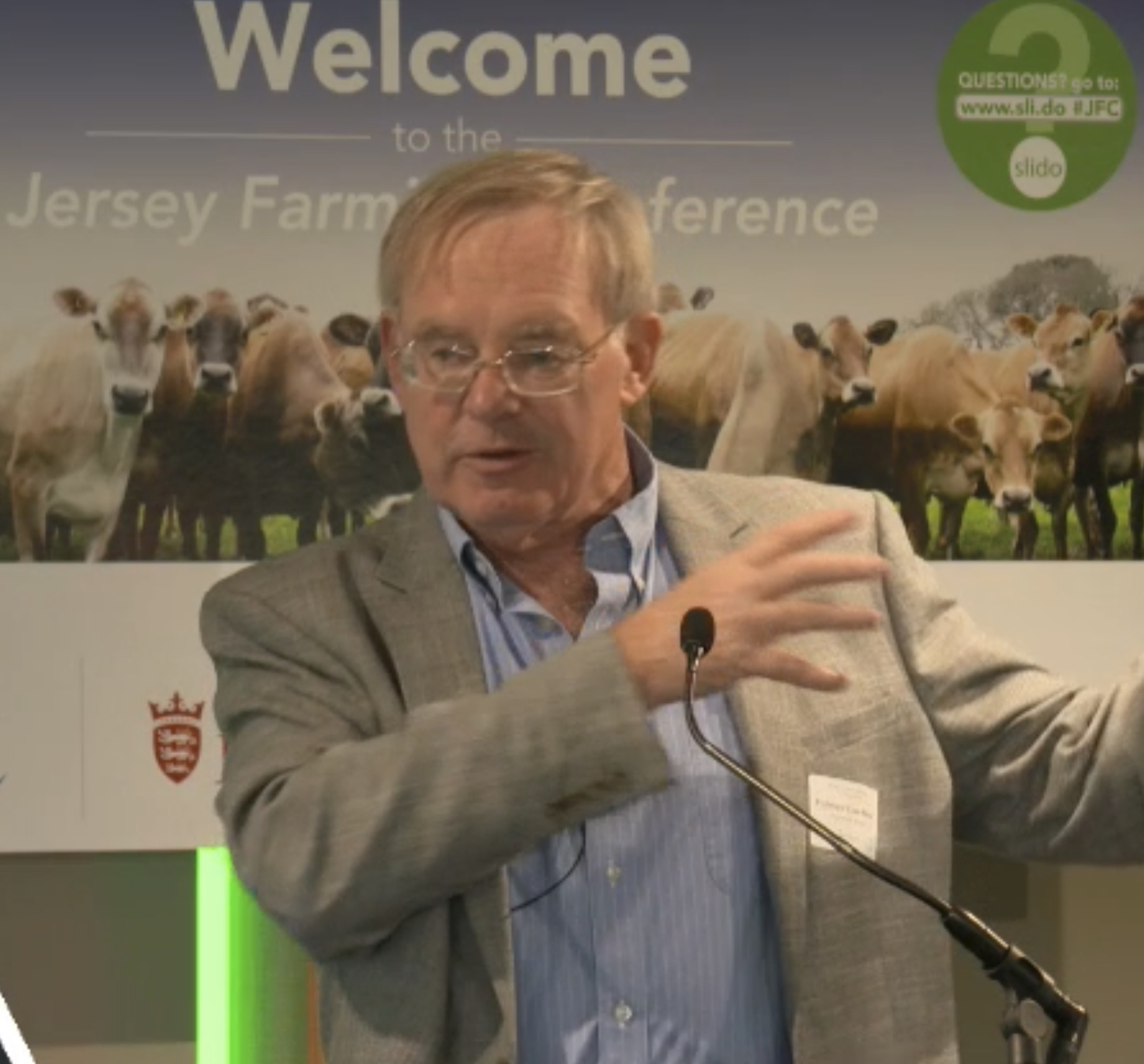


Contrary to popular opinion, cow farts are not a significant source of methane. However, their breath and manure are.
But Jersey’s dairy industry – which does not use intensive farming methods – is not a significant emitter of this greenhouse gas, but the Island should still take every opportunity to reduce methane emissions where it can.
This insight was shared by Professor Euan Nisbet, who leads the UK’s efforts to study methane around the planet, who spoke at the recent Jersey Farming Conference.
He explained that methane (CH4) was the second biggest contributor to global warming after carbon dioxide (CO2). The former is a far more potent greenhouse gas but there is less of it in the atmosphere because it converts to CO2 over time,’ he said.

Pictured: Dr Euan Nisbet, who is a scientist at the Royal Holloway University of London.
Over 20 years, methane has 86 times the warming impact of carbon dioxide, reducing to 34 times over 100 years, as more of the gas is broken down.
When it came to progress since the 2015 Paris agreement on reducing levels of greenhouse gases, methane was the worst performing, Prof Nisbet said.
“It is the gas that is most out of line with the expectations of the agreement,” said. “Paris expected a lot out of methane and subsequently nothing has been done.”
Since 2007, the primary sources of methane had tilted away from burning fossils fuels towards biological sources, including biomass in landfills, tropical wetlands, trees being felled and ruminants, principally cow manure, which is stored in large lakes in some places.
Gas leaks and land-clearing fires are also large sources of methane.
The good news, said Prof Nisbet, is that methane can be removed from the atmosphere by oxidation and also biologically, by covering landfill in a 20 cm layer of soil, which contains gas-digesting methanotrophs.
And while Jersey was not a significant source, he urged farmers to do all they can to reduce emissions. Moving to organic farming would be a positive step, he added.
Comments
Comments on this story express the views of the commentator only, not Bailiwick Publishing. We are unable to guarantee the accuracy of any of those comments.